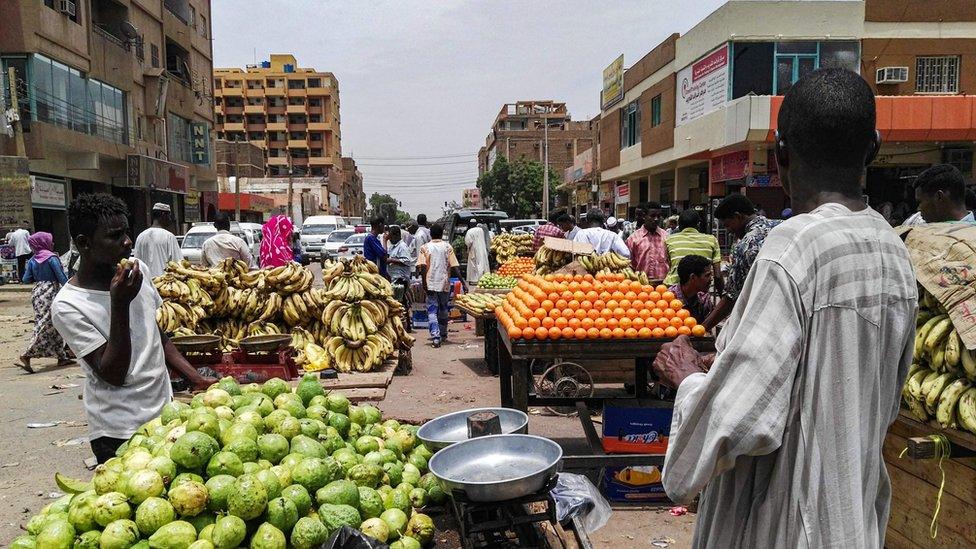Blue for Sudan: 'We've come too far to let them die in vain'
- Published
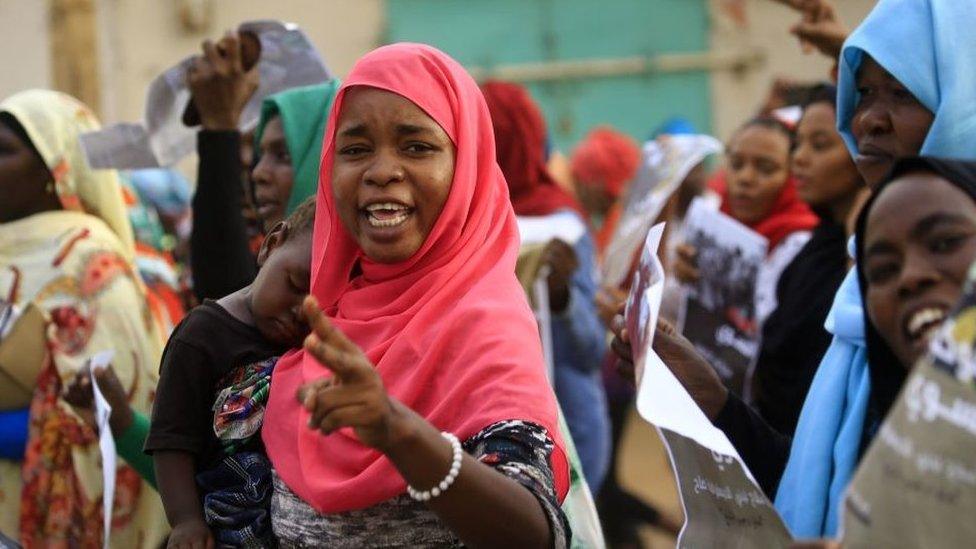
When you hear the word Sudan, you might think of violence, genocide and war.
But according to Hiba, a masters student who's lived there for years after moving from the UK, that's not at all representative of the country.
The 22-year-old, whose name we've changed because she wishes to remain anonymous, tells Radio 1 Newsbeat: "Every English person I've ever taken to Sudan - I've taken literally now over a dozen - has fallen in love with the country.
"Sudanese people are among the most hospitable and generous in the world."
There's a reason you've been seeing celebrities like Rihanna, Naomi Campbell and Ne-Yo trying to raise awareness about Sudan on Instagram this week - by turning their profiles blue.
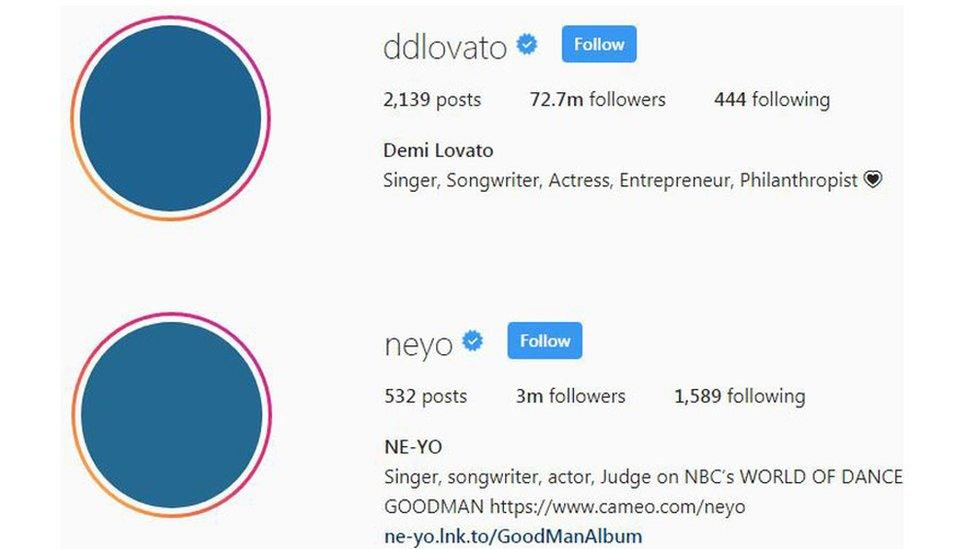
On 3 June more than 100 innocent peaceful protesters were killed at a sit-in in the capital Khartoum. It's being called a massacre.
The #BlueForSudan social media movement started when 26-year-old Mohamed Hashim Mattar was killed in the crackdown.
His profile picture at the time was of the same blue now being used across Instagram. It was also reportedly his favourite colour.
Allow X content?
This article contains content provided by X. We ask for your permission before anything is loaded, as they may be using cookies and other technologies. You may want to read X’s cookie policy, external and privacy policy, external before accepting. To view this content choose ‘accept and continue’.

When Instagram user @reresolve_ asked followers to change their profile pictures in solidarity the movement went viral.
Stars like Demi Lovato and model Halima Aden have since changed their Instagram profile pictures to the same shade of blue.
Rihanna, Naomi Campbell and Ne-Yo have also been sharing posts raising awareness about the situation in Sudan.
Allow Instagram content?
This article contains content provided by Instagram. We ask for your permission before anything is loaded, as they may be using cookies and other technologies. You may want to read Meta’s Instagram cookie policy, external and privacy policy, external before accepting. To view this content choose ‘accept and continue’.

Allow Instagram content?
This article contains content provided by Instagram. We ask for your permission before anything is loaded, as they may be using cookies and other technologies. You may want to read Meta’s Instagram cookie policy, external and privacy policy, external before accepting. To view this content choose ‘accept and continue’.

The country has been in crisis since the dictator who ruled over Sudan for 30 years, Omar al-Bashir, was overthrown when protesters occupied the square in front of the military headquarters.
That was the start of the sit-in that ended with more than 100 people killed on 3 June.
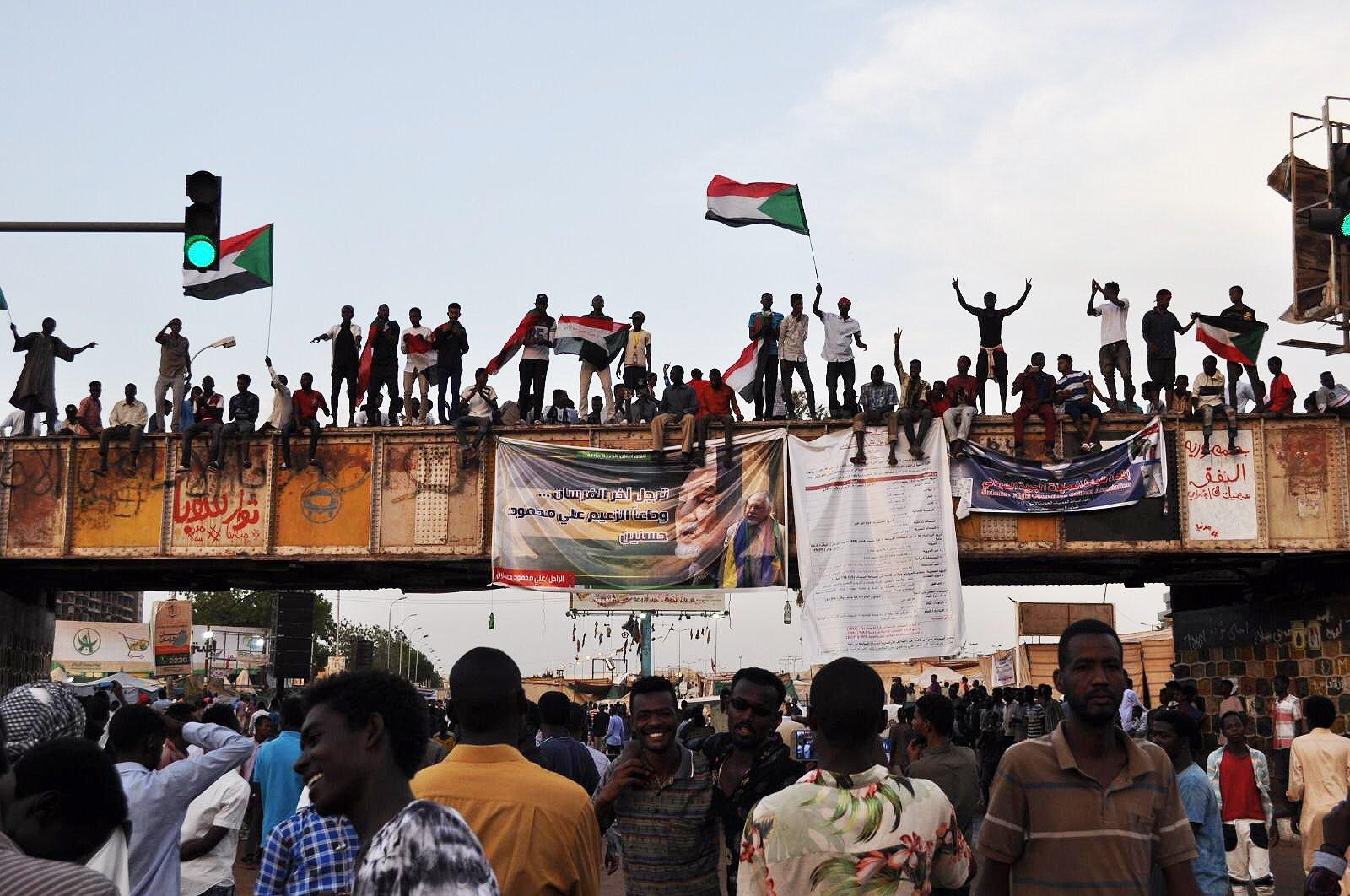
Protests have been taking place in Sudan
But despite the sit-in being broken up, Hiba says the movement that started there has given people in the country hope.
"The first time I went to the sit-in, I realised how different things were.
"Whereas in the past protesters were usually from quite specific ethnic or social groups, at the sit-in was literally every single ethnic group - Arabs, Africans, Christians, Muslims. Everybody was there together, millionaires and homeless children.
"That's when I realised that this had taken on a different character to any protest before."

What's the background?
Sudan has had two revolutions, in 1964 and 1985, but both times they ended up being reversed when the military took over.
Hiba says that Sudan under Omar al-Bashir was one of the world's "most strict and brutal dictatorships".
"His regime was extremely racist to anyone who wasn't ethnically Arab, and Sudan has 160 different linguistic groups alone, we're a very diverse country - both Arab but also African."
Minorities were persecuted and Sudanese people lived under censorship.
"It was a police state where the military got 70% of our spending per year and they used the military and the police to implement a nation in the politics of fear," Hiba says.
"Nobody even knew what the laws were, what the punishments were, because they'd just implement them as and when they saw fit to scare people into submission."
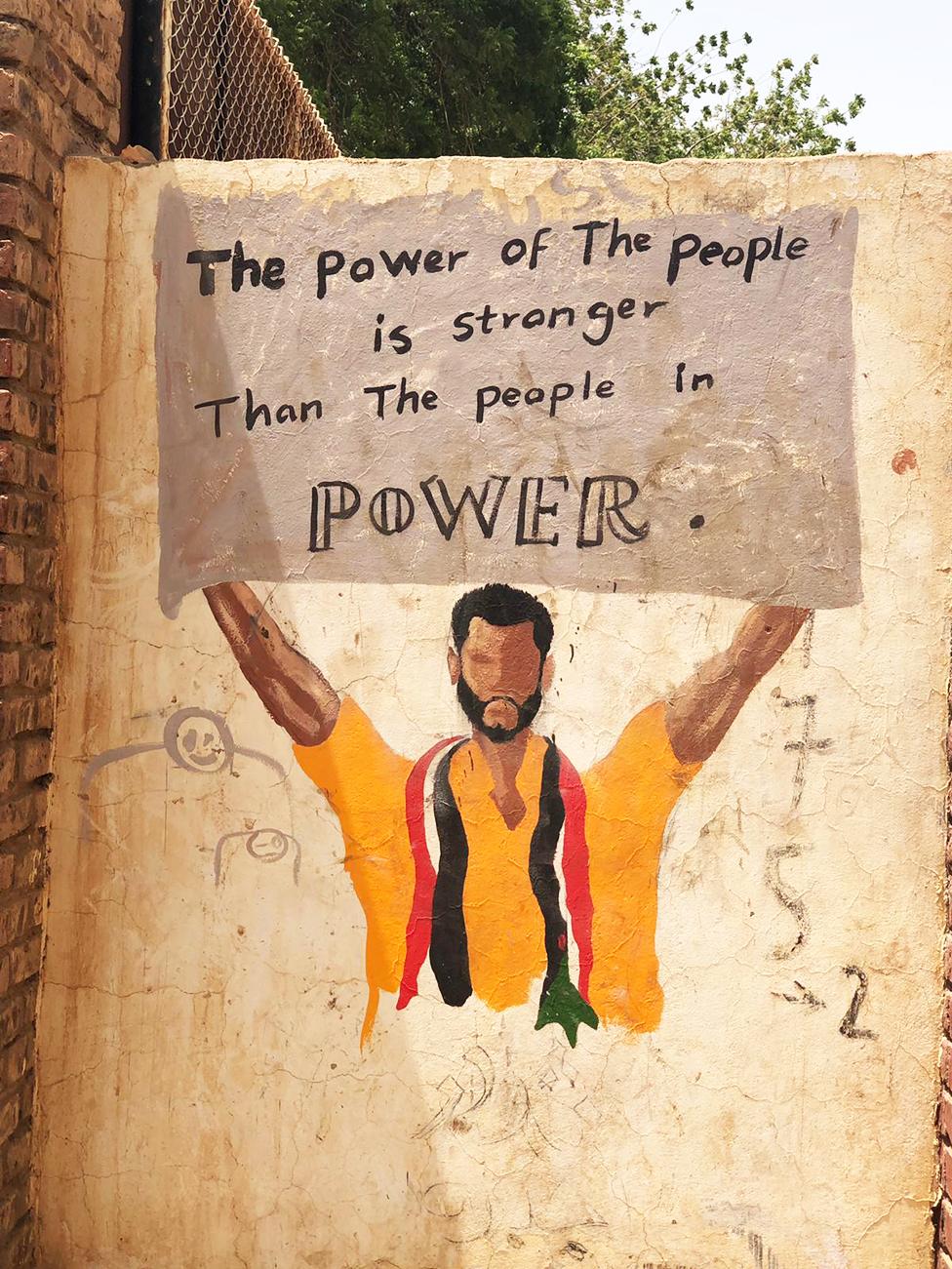
"The protests are the first time I've ever seen, on mass, people break through those chains of fear," says Hiba

Sudan was divided into two countries in 2011, after people in the south voted for independence. Mainly Christian and Animist people there had for decades been struggling against rule by the Arab Muslim north.
Two rounds of north-south civil war cost the lives of 1.5 million people, and a continuing conflict in the western region of Darfur has driven two million people from their homes and killed more than 200,000.
You can read a full explainer of what's happening in Sudan here

Sudan's young hope
Sudan is a country where reportedly 60% of the population is under 30 and the revolution that's been taking place since December has been led by women and young people.
Congregating in public under Omar al-Bashir was difficult, so the internet and social media have played a big role, according to Dinan Alasad, a 21-year-old who lived in Sudan until starting university in Toronto two years ago.
"It really is the youth realising through exposure and conversations with each other and through analysis that we can do so much better, that we have the resources and the skills and the desire for a better country," she says.
Dinan came back from university and went directly to the sit-in, and would have been there on the night of the massacre if she wasn't waiting for her sister who was sleeping.
"If she hadn't taken that power nap we would probably have been there.
"But a lot of my very close friends were there and I actually lost a very close friend of mine that day. It felt like a very immediate tragedy, a very close tragedy."
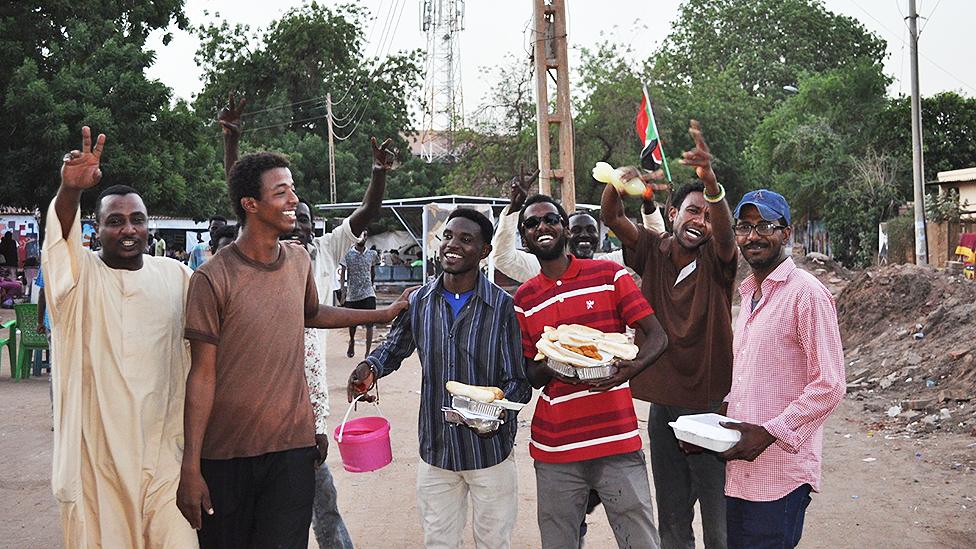
As well as violent clashes, there have been more peaceful protests where people have discussed politics and the future of the country
Hiba and Dinan call the events of recent weeks "bittersweet".
But they think this "is finally the change that we have been waiting for for a long time".
"I have huge faith in our youth," Dinan says.
"I used to always feel like I had this deep love for Sudan and didn't know what to do with it. It just felt like the obstacles were so huge and the regime was insurmountable. But seeing that there is a huge population that feel exactly the same the way that I do gives me so much hope."
Hiba adds: "It's the fact that people haven't given up. My friends are still out there protesting. Too many people have died, people have come too far to let them die in vain."
Although they're hopeful, there's still anxiety for those living in Sudan and what their future may look like.
"We don't want to live in this Sudan forever, we don't want to grow old in this Sudan, we don't want to leave," Dinan says.
"We have a very deep connection to our country. We don't want to be forced out of our country into different countries and have to settle into different places. We very much want to build where we are."


Follow Newsbeat on Instagram, external, Facebook, external, Twitter, external and YouTube, external.
Listen to Newsbeat live at 12:45 and 17:45 weekdays - or listen back here.
- Published13 June 2019
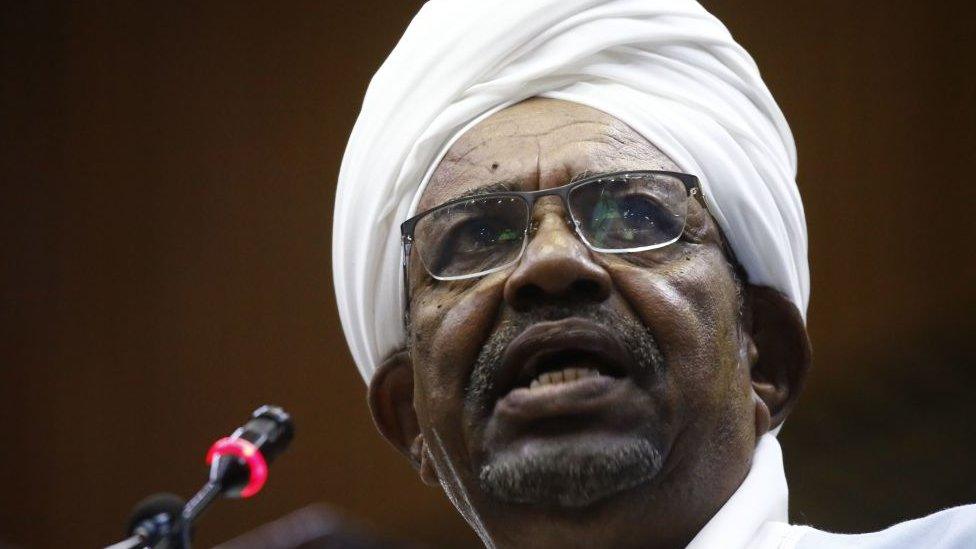
- Published13 June 2019
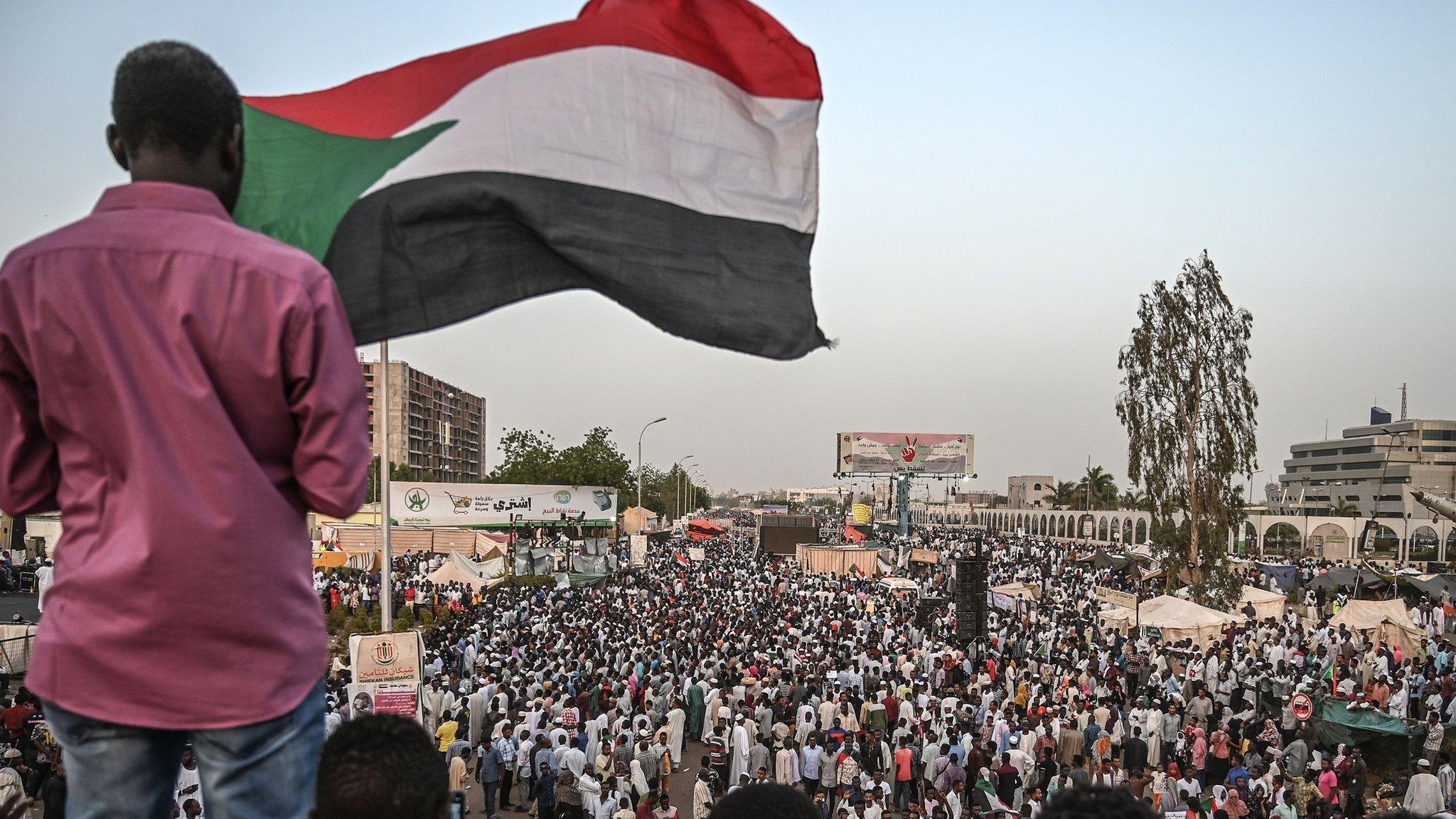
- Published11 June 2019
